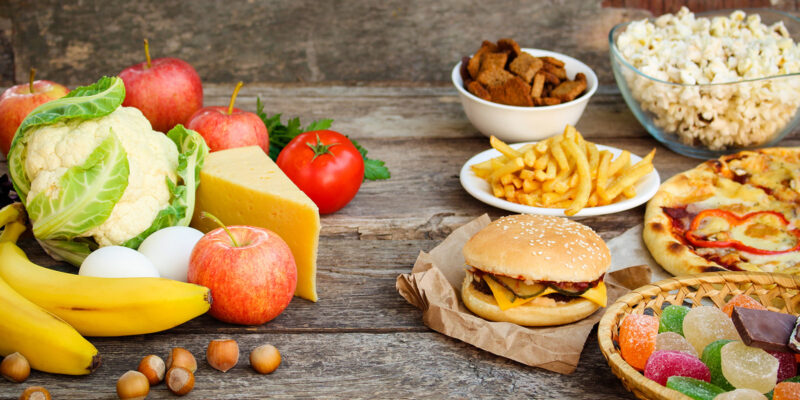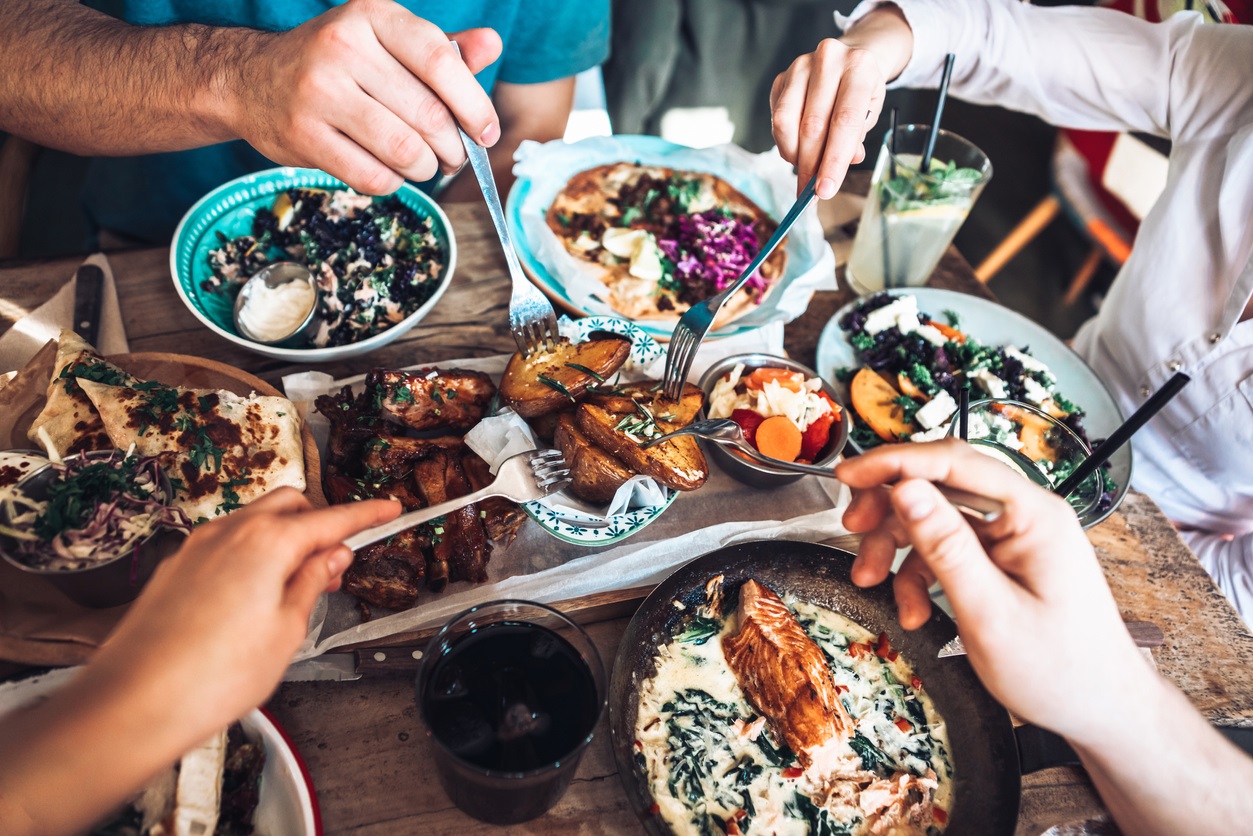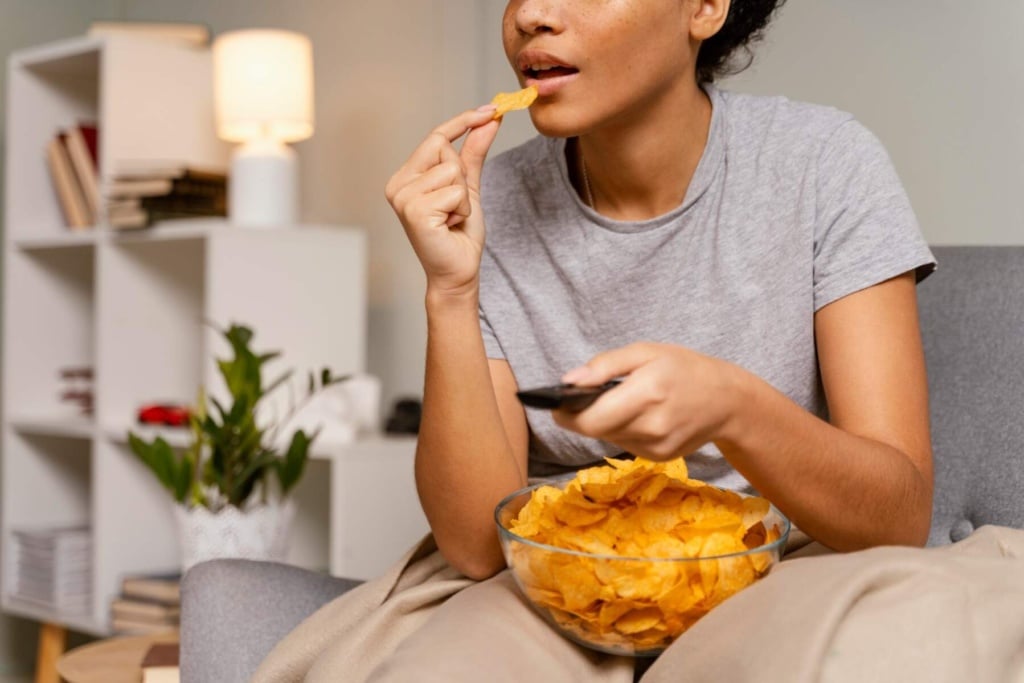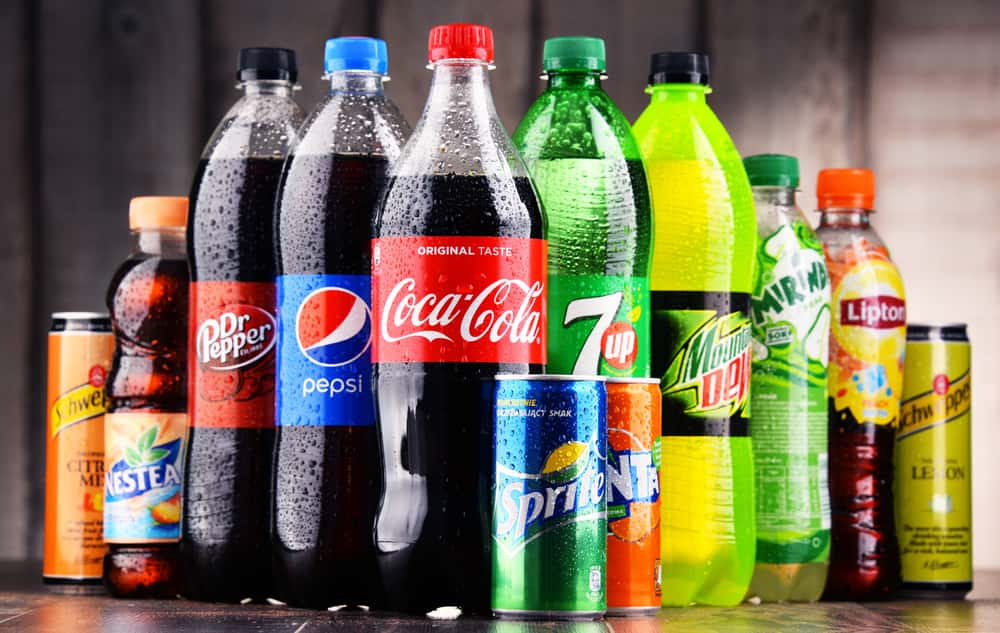
Unhealthy Relationship With Food
Eating occupies such a large segment of our lives, much of which is beneficial for the hope of long term health. Often-cases though the food we consume rarely has much health benefits of their own and these diets are ruining our bodies slowly but surely.
Not only has the quality of food deteriorated gradually over the past few decades, but our bad habits with eating has started to catch up with us. Using food as a comfort has caused great disparities with chronic illness, overweight physiques, mental illness, fatigue, and pre-existing conditions that are still a great concern in 2024.
As I observe the epidemic of obesity getting worse as time goes on, there have been clues on where most people are struggling with their health in this current day and age. Food has become an addiction that has taken a stronghold over the masses and becoming aware of our habits is key to stopping this epidemic before it’s too late.
Top 10 Signs You May Be A Food Addict

- Eating Late Night Before Bedtime
This habit is common with the younger generation as many like to go out in social circles to enjoy recreational events with each other late in the evening, in comparison with older adults who spend majority of their nights at home. Late night fast food, restaurants, or snacking is commonplace when you’re hungry and there’s very few options to prepare a proper meal.
As ordinary that it seems, this practice is never beneficial towards your health as the digestive system was never designed to breakdown food when your body is winding down before getting rest. When we eat during late hours our parasympathetic system, the nervous system that helps us feel sleepy, gets disturbed and poorer sleep quality is almost imminent.
Without being precautious of this habit, we can develop indigestion issues, lost REM sleep, weight gain, stomach issues, and elevated blood sugar levels.

2. Impulse Eating When Going Out
When you’re out in town and taking care of your responsibilities for the day, it’s easy to get distracted by the restaurants and cafes located everywhere. Especially when you’re living in these large metropolitan cities and suburban shopping centers that have comfort foods of all varieties surrounding you.
The temptation to have a meal or snack that you didn’t plan for becomes too good for the undisciplined to resist and many of us choose to indulge every now and then. This can become a habit the more we travel, attend events, or socialize with our family and friends.
Impulse eating is a problem because of what little knowledge that we have regards to how the food was prepared. Many of these impulse urges draw us to foods that have high fat, sugar, and salt content and impacts our reasoning to make us want to consume them.
This is often done using television marketing/advertising and carefully distributed restaurants in the area. If you fall for this trick often, you may be harboring a mild food addiction.

3. Eating Close to Waking Hours
This one is controversial as the mantra that breakfast is the most important meal of the day has been ingrained in our minds since we were children. However, when we consider that the first thing we think about is stuffing our bodies with food to get energy, this concept sounds quite bizarre.
Most people have a very small space of time to get prepared for the morning, yet it’s commonplace for people to want to consume a large breakfast or a pre-prepared snack to start the day. Cooking healthy breakfast food requires a good amount of time to prepare and clean-up, which leads individuals to rely on processed breakfast products designed to eat on the move.
You definitely have a food addiction if you can’t function without a meal first thing in the morning. Breakfast spikes insulin levels and often causes hunger hormones to be released shortly after consuming your meal once blood sugar levels crash.

4. Eating More Than 50% Of Your Diet in Processed Food
Higher sugar and fat content foods gives better feelings of reward when you consume them, which is why many of us like accompanying whole foods with processed snacks. These foods give you better feelings of reward, even when you’re full.
While the processed foods give us a huge amount of satisfaction, it becomes problematic as processed food leads to the down regulation of our dopamine receptors in the brain and desensitize us. As we become desensitized we need more of the same foods to make us feel satiated, slowly bringing us towards addictive habits of overeating processed food.
This also leads to a phenomenon known as volume addiction, which is the last stages of food addiction where insulin, ghrelin, and leptin resistance (hormones that regulate metabolism) becomes a problem.

5. No Meal Plan For The Week
A plan to fail results from the failure to plan anything that you do. Food marketers know this, so they rely on our lack of discipline to prepare our meals for ourselves and advertise savory foods on television and print media that we can’t resist.
Most people fail to plan meals for the week due to lack of convenience or the time constraint involved with preparing large quantities of food. Fortunately, meal planning services have sprung up in the food delivery industry for well over a decade now.
These services have become very commonplace for affluent consumers, however there needs to be a new paradigm set for everyone to become accustomed to planning meals for their families on a regular basis.

6. Constantly Eating Out At Restaurants
Dining out with those closest to you is socially satisfying and creates great experiences that many of us cherish. This is why some people prefer going out to the restaurants rather than preparing meals in their home, where they’ll have to spend the extra effort of cooking and cleaning up shortly afterwards.
Foodies find value with this lifestyle as some of their favorite restaurants give value for the price of the service and high quality food menu items that they frequent often. The problem with this habit is that the food isn’t prepared from your own kitchen and you often don’t have a clue what ingredients were used or where the food was sourced on your plate.
The other problem is that the serving size within these meals are often too large for one person to consume and many people are overeating simply by choosing to eat out at the restaurants. This is especially a problem in North America and is one of the main reasons contributing to the obesity epidemic in my opinion.

7. Eating Low Quality, Cheap Food
Eating is one of the ways individuals choose to manage psychological issues, which is why there’s so many cheap foods available to fill this need. Cookies, cakes, chips, pastries, and candies are all around our grocery stores and are often the lowest priced items on the shelves.
Consuming these items is often treated as a reward, however many of these foods are difficult to stop eating once they trick the brain into thinking they’re not getting enough calories. This makes you unable to stop eating, as seen with popular snacks like chips or cookies.

8. Snacking Throughout The Day
The availability of snacks in the store gives the average consumer access to these junk foods any time of the day. This is a new trend, as most of these snack foods weren’t as easily available decades before.
As a result, people are snacking between meals more often and developing addictions with packaged foods more than ever. Snacks have become more desired over whole foods like fruits and vegetables because they’re more palatable to our taste buds.

9. Consuming High Calorie Beverages Throughout The Day
The thought of drinking water simply bores the average person to death, which is why so many people prefer sugary beverages over anything. Sugar is highly addictive because it triggers large amounts of dopamine in the brain and stretches receptors in the stomach that release opioids.
When these chemicals are released in our body, the brain becomes dependent on the sugar in the beverages to become satisfied when consuming them. It’s almost impossible for many to quit drinks like coffee, soda, teas, and energy drinks because the brain has adapted so well to these drinks.
10. Short Eating Times Between Meals
People that love to eat usually love to be surrounded by their favorite foods and/or think about their next meal after eating. Eating lunch for one meal could be followed with a snack or second meal within a couple of hours, which creates a few concerns.
For one, this indicates that the foods selected on the plate aren’t creating satiety and are probably highly processed. Secondly, this could indicate that you have bad habits of constantly thinking of or hunting for food as the day progresses.
At this point you’re merely eating emotionally and can create a toxic relationship with the foods you enjoy the most.
Beating Food Addiction
The first step towards any addiction is to become aware of the problem by identifying it. The signs of food addiction can be overcome by taking accountability over our actions and finding healthy ways to cope with this struggle.
One of the best ways I’ve found to beat the food addictions are to practice mindfulness. Mindfulness is all about being conscious of the present moment to control our thoughts without over thinking.
This can be accomplished by practicing modalities like meditation, yoga, Qi-Gong, and fasting to rid our mind of hedonistic thoughts about food. Healing your relationship with food begins by permanently changing our thoughts so we can adopt better long lasting, healthy eating habits.
The Wrap Up
Food plays a very important role in our lives, but the average person has an unhealthy relationship with their food and it’s causing a global health crisis that we’ve never witnessed before. Staying healthy is not only about selecting the quality of foods but also the quantity. Mindfulness about our health starts with controlling our eating habits, which cannot be forced by following any particular diet to make dramatic and long lasting changes.
What else do you want to know?
Why You Should Adopt Detoxing Everyday Into Your Fitness Lifestyle

Leave a Reply
You must be logged in to post a comment.